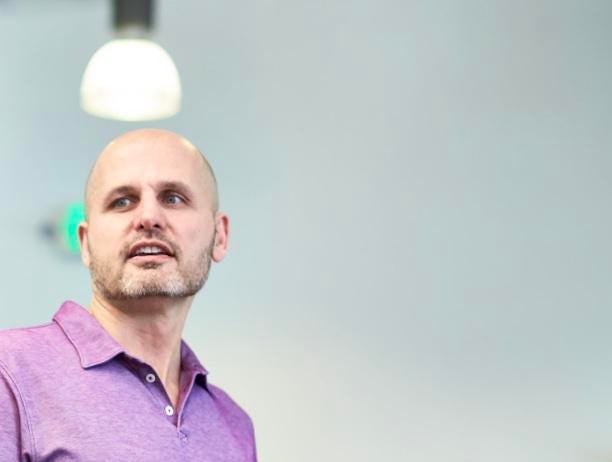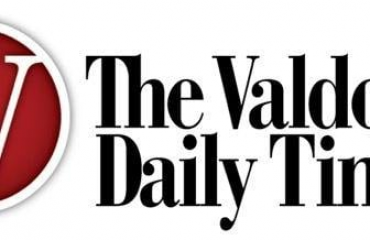Careers Weekly: A 'Nudge Engine' Funding Raise, 25 Jobs For The Future And The Ranks Of Black CEOs Grow—To Just Six – Forbes
Here is this week’s Careers newsletter, which brings the latest news, commentary and ideas about the workplace, leadership and the future of work straight to your inbox every Tuesday. Click here to get on the newsletter list!
Humu, an HR tech startup cofounded by former Google head of HR Laszlo Bock, announced a $60 million Series C funding round Tuesday.
W
e’re more than three weeks into the new year and if you’ve stuck with your New Year’s resolutions ‘til now, hats off. My plans to reduce my social media and dessert consumption are already busted, maybe because I didn’t read this story. This week in Forbes Careers:
What do you remember about your first day on the job? For Laszlo Bock, the former head of H.R. at Google, it was the meeting on his first day where a candidate got rejected because someone said the person had a “stupid major.”
But the distaste he felt that day for H.R. decisions being made by bias is part of what inspired him four years ago to cofound Humu, an H.R. tech platform that uses artificial intelligence and “nudge” theory to help organizations keep employees engaged and effective in their jobs. Humu announced a $60 million Series C funding round this morning.
“The challenge with a lot of H.R. issues and people challenges inside companies is every single person has their own intuition about what the right answer is,” Bock told me recently.
While Humu is an interesting company, what intrigues me is Bock’s career, a microcosm of sorts to how human resources has evolved over the past few decades. He started off at McKinsey during the late dot-com boom, landed at General Electric’s H.R. department—when it was still considered a leadership “academy” rather than an aging industrial on the verge of breakup—and then got a call from Google, where he helped build its culture fueled by free lunches and onsite dry cleaning, as well as its influential “people analytics” team.
In interviews, Bock shared all kinds of interesting tidbits about his career, only some of which made it into my story: While getting his MBA at Yale, a McKinsey consultant told him his resume wasn’t “distinctive enough;” he didn’t meet Google’s founders or CEO before taking his job there; and at GE, even back in the mid-2000s, he could see the company’s “H.R. machine” already “fraying at the edges,” Bock recalls. To read more of the story, head here.
—Jena McGregor, Forbes Senior Editor, Careers
Frank Clyburn, a senior executive at pharmaceutical company Merck, will become the next CEO at International Flavors & Fragrances, joining a small list of Black chief executives at companies in the S&P 500 Index. The ranks of Black CEOs at major American companies haven’t changed materially over roughly the past two decades, even as the pressure to better diversify has grown. According to research, there were five Black CEOs in 2004, five in 2020 and never more than seven in any given year. Read more here.
Hybrid work can hurt equality. Here are 10 ways to prevent that.
In a war for talent, a mentorship program can be a powerful weapon.
When your workday feels overwhelming, it’s critical to prioritize. Here are three easy ways to make that happen.
Here are the top 10 phrases to use in your job descriptions and resumes.
Vaccine specialist. Diversity and inclusion manager. Machine learning engineer. These are the 25 fastest-growing jobs on LinkedIn that will be in demand in the future.
Your boss is at the office, even if you aren’t: Future Forum, a consortium launched by Slack with founding partners Boston Consulting Group, MillerKnoll and MLT, finds in a new survey of more than 10,000 workers that 71% of executives say they work from the office three or more days a week, compared with 63% of non-executives. That’s a recipe for what some call “proximity bias,” where just being close by could give certain people a leg up.
Chump change: A Wharton professor revealed how clueless many MBAs are about the average American salary, with a quarter of the professor’s students thinking it was over six figures and one suggesting it was $800,000. A tiny sample size, to be sure, but a reminder that business school students—and therefore, many managers—may need reminders about how much less the average American really makes.
Reversals brewing for vaccine mandates? Starbucks scrapped its vaccine requirements for U.S. employees after the Supreme Court rejected the Biden administration’s plan. Could other companies follow suit, particularly in hard-to-hire fields with frontline workers?
H.R. is getting app-ified: The newsletter H.R. Brew wrote recently about the proliferation of apps helping run human resources. And new data from Okta, the identity management firm, shows that for the first time ever, five of the 10 fastest-growing apps on its network are employee collaboration tools: Notion, Figma, Miro, Airtable and monday.com.
Who knew? Apparently this Friday, January 28, is National Fun At Work Day. (Really. It’s a thing.) If your company takes that kind of thing seriously, hope it means you get to kick off early, rather than another Zoom happy hour.
Fixing diversity and inclusion isn’t just management’s job—it’s everyone’s. But in all too many workplaces, trying to speak up about race gets you shut down, writes Y-Vonne Hutchinson, the CEO of consulting firm ReadySet, in How To Talk To Your Boss About Race, released last week. In this handbook-sized guide written for workers who care deeply about antiracism and taking action, Hutchinson shares how to push your boss in ways they might listen.
Key quote: “When you call attention to the fact that racism exists in the workplace, you complicate people’s narratives about meritocracy, how they earned what they have, and their sense of themselves and their worth. You call into question one of the primary ways in which we define ourselves,” Hutchinson writes.



